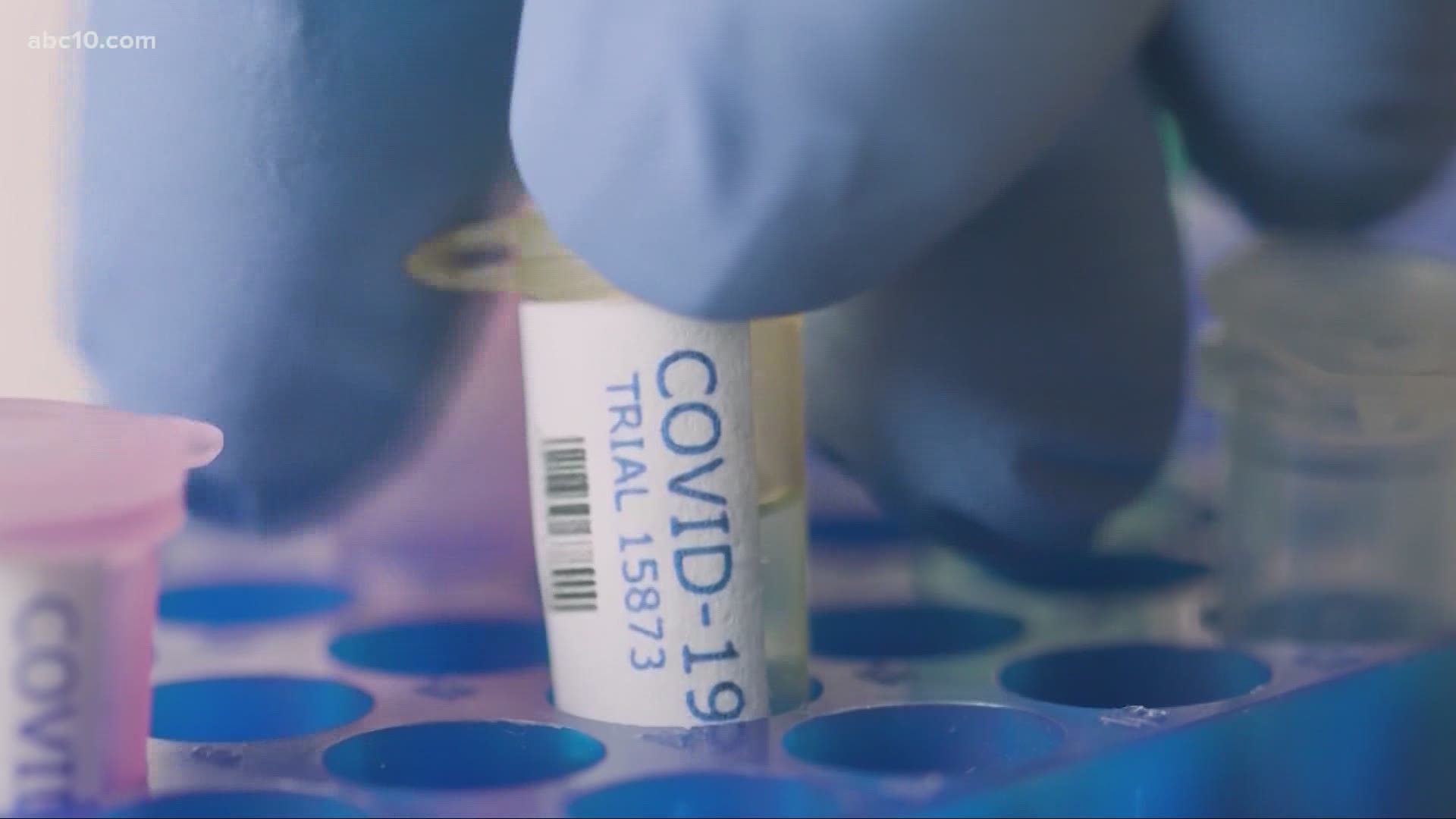SACRAMENTO, Calif. — The United States Food and Drug Administration (FDA) has approved the Pfizer coronavirus vaccine, which has been distributed and is being administered to the first out-of-trial candidates all over the country.
Frontline healthcare workers became the first to receive the vaccines. A Queens, New York doctor was one of the first to receive it.
“We’ve been through so much that this was the first step towards hope, towards getting to a place where we do not have to worry about ourselves, about our loved ones, about our families,” Dr. Yve Duroseau said.
Health officials are vouching for the vaccine's safety including FDA Commissioner Dr. Stephen Hahn. The FDA approved the vaccine for emergency use.
“I will absolutely take this COVID-19 vaccine pending availability and distribution because I have complete trust and confidence in the FDA’s career staff's evaluation,” Hahn said.
A November Gallup Poll found that 6 in 10 Americans would be willing to get a coronavirus vaccine. Democrats and older Americans would be the most willing to get it, the Gallup poll found. The speed of development was cited as the most common reason not to vaccinate.
Dr. Payal Kohli is ABC 10’s medical expert. She said that while many may have questions, she has confidence that the vaccine is safe and the benefits outweigh the risks.
“So, remember on this side you have the unanswered questions from the vaccine and on this side you have the horrible morbidity and mortality from COVID-19,” Kohli said.
ABC10 asked what your concerns are with the vaccine on our ABC 10 Facebook page. Pat wanted to know the side-effects.
The CDC says the most common short-term side effects include pain and swelling in your arm; fever, chills, tiredness, and headache throughout the rest of your body.
Angela wanted to know about the long-term effects. However, the vaccine is too new to know about long-term health effects.
“But the good news is that history tells us that most of the serious adverse reactions that tend to occur in response to vaccines usually tend to occur in the first two or three months, sometimes four months after vaccination,” Kohli said.
Clare wanted to know if the vaccine is a cure or prevention. The CDC said getting the vaccine can prevent you from getting the virus. The vaccine does not give you the virus and people who have already had the virus could still benefit from the vaccine, the CDC wrote.
Nancy wanted to know if it’s safe.
“So, I think when you weigh the risks and benefits and the scientific evidence, it is overwhelmingly in favor of the vaccine to protect ourselves and to protect everyone else,” Kohli said.
Even after emergency use authorization, the FDA requires vaccine manufacturers to have plans for active safety follow-ups including monitoring for deaths, hospitalizations, or other serious incidents.
The FDA also expects manufacturers to continue clinical trials to learn more about the safety and effectiveness of the vaccine and to pursue authorization.
Continue the conversation with Giacomo on Facebook.



















